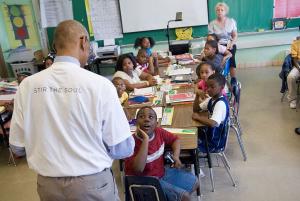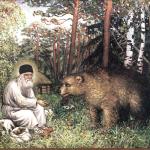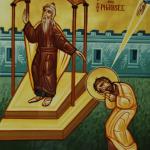
Since it is commonly understood that, as Winston Churchill put it, “Those that fail to learn from history are doomed to repeat it,” it would seem that those who would have us ignore key elements of history do so in order to make sure history repeats itself. That is, those who would make sure our children do not learn the lessons of history seem to have an ulterior motive, one which is to undermine the progress of history and the moral lessons we have learned from it so that various fancies of theirs which come from the past can hold sway over society in the future. This certainly appears be the case with the recent attack on the teaching of any and all history which deals racism its root causes. They do this with the claim that they are fighting an ideology, one which they label “CRT” (Critical Race Theory), but it is clear, they use the label as an equivocal term to represent any and all discussion of the history of racism and the abuse which particular peoples received by those with privilege (in other words, any discussion of racism as a whole).
CRT, in the technical sense, itself, is important, and worthy of discussion. Rashawn Ray and Alexandra Gibbons explains what CRT is about. The first element of it is simple:
Simply put, critical race theory states that U.S. social institutions (e.g., the criminal justice system, education system, labor market, housing market, and healthcare system) are laced with racism embedded in laws, regulations, rules, and procedures that lead to differential outcomes by race. [1]
What comes as the result of this analysis is what can be debated; however, what is clear is that CRT is not saying whites today are themselves guilty of sins which they did not commit. However, it points out they are often the heirs of those who did, they often benefit from those sins, and insofar as the system continues to have them gain an unfair advantage over others, they must work to change the system and make things equitable for all (or else, they will become guilty of such offenses):
Scholars and activists who discuss CRT are not arguing that white people living now are to blame for what people did in the past. They are saying that white people living now have a moral responsibility to do something about how racism still impacts all of our lives today. [2]
This is different from the teaching of what happened in history, the horrors that African Americans, Native Americans, Asian Americans, and many others suffered merely because of their race. Of course, discussing what happened requires analysis of what happened, showing why it was wrong, making sure people will not repeat the sins of the past, but it leaves it up to the students to discern the implications of this, to figure out what it should mean for how they live and act in the present time. History is important for the analysis which comes from CRT, but it is not CRT itself.
To gut the teaching of history so as to circumvent the discussions which flow from it is one way to attack CRT, not directly, but indirectly; ironically, it also affirms elements of CRT, because it shows how racism continues to play a part in modern society and threatens to undermine what equity has been established. Thus, this is why opponents are using CRT as their boogeyman. They know an honest assessment with history will bring about the discussions that will encourage the dismantlement of any remnant of systematic racism and the privilege it gives to various people within society. This dismantling of power which they hold is what they want to stop before reversing course and reestablishing all the privileges they once had at the expense of others.
Many of those who have fighting CRT do not know what CRT is, and their interest is not in CRT itself but rather in the rejection of the proper teaching of history. It is used as an equivocal term to represent any discussion of racism, discussions which they do not like. It makes them uncomfortable. This is why we see laws which supposedly seek to ban CRT are ambiguous. CRT is not defined so anything which is not liked can end up being denounced as CRT, as Tyler Kinkade suggested on Fresh Air:
Right. So you have a situation where virtually all school districts confronted about this are saying, we don’t teach critical race theory. It’s not part of our curriculum. But opponents are using critical race theory as really more of a catchall to include anything teaching students about systemic racism, any mention of white privilege, and, really, the definition that they’re using has expanded to include anything related to equity, diversity and inclusion. They tossed in terms like social-emotional learning. These are not things that the average person maybe gives a lot of thought about, but these are very commonly used terms in K-12 schools across the country.[3]
History is filled with horrors, and we must not think we can or should shield children today of those horrors, using that as an excuse to justify ignoring what happened in the past. Children suffered those horrors, and still suffer them today. It is worse to experience the pains of racism than it is to study them; indeed, to study them offers hope, because history shows ways racism has been fought and overcome, suggesting ways to deal with whatever elements of racism remains in the present moment.
We must be honest with ourselves. We must accept that even as our democracy was being formed, it was formed on the backs of many who received none of the benefits promised by our democracy. Our country was founded with a sin which tarnishes its legacy. This is why many do not want to hear what Black History has to tell us, and yet it is a necessary story which must be told. “Black history offers the nation an unvarnished origin story — one that transcends the mythology of America’s founding and conveys the lived realities of native peoples and Black Americans and their centrality to the United States we live in today.”[4] We must acknowledge the sins of the past, the sacrifices forced upon others for the sake of society, and this is exactly what is being silenced in the classroom today. “The possibility of a more just future is at stake when book bans deny young people access to knowledge of the past.” [5] We must truly recognize education will suffer if we let these bans take hold of society, for education will become mere indoctrination instead of a tool for proper social reform:
Today, there is need for a renewed commitment to an education that engages society at every level. Let us heed the plea of the young, which opens our eyes to both the urgent need and the exciting opportunity of a renewed kind of education that is not tempted to look the other way and thus favour grave social injustices, violations of rights, terrible forms of poverty and the waste of human lives. [6]
Or, as St. John Paul II said:
There is need for a vast work of education to the values that exalt the dignity of the human person and safeguard his fundamental rights. The Church intends to continue her efforts in this area, and asks all believers to make their own responsible contribution of conversion of heart, sensitization and formation. [7]
“If we say we have no sin, we deceive ourselves, and the truth is not in us” (1 Jn. 1:8 RSV). We must be honest and admit the sins of the past, and also, the sins of the present. “Therefore, putting away falsehood, let every one speak the truth with his neighbor, for we are members one of another” (Eph. 4:25 RSV). We must stop this insane attack on the teaching of history; though the claim is that it makes some people uncomfortable, we must remember what happened did more than make people uncomfortable, it ruined their lives, having many people broken down, tortured, raped, and killed; if we do not take into consideration what happened, if we are not honest about history, we will not be able to get beyond the sins of the past; we will find them repeating. We must also be honest and acknowledge that this is the intention of some (if not many) behind these efforts to silence history. Instead of sitting back and doing nothing, or worse, joining in with these efforts, Christians should be at the forefront of these discussions, fighting against the bans which are being put in place, because those bans stand for and promote sins instead of their repudiation, sin which establish barriers in society which Christians should reject:
“To walk humbly with God” (cf. Mic 6:8) means above all to walk in radical faith, like Abraham, trusting in God, finding in him our every hope and aspiration. However, it also means crossing over barriers, over hatred, racism and the social and religious discrimination that divides and damages society as a whole.[8]
Christians have lost their way when they support racial supremacy or the policies which will help bring it back. They end up using Christianity instead of engaging it, and in doing so, undermine not only the proper development of society, but authentic Christianity as well.
[1] Rashawn Ray and Alexandra Gibbons, “Why States Are Banning Critical Race Theory” in Brookings Institute (11-2021).
[2] Rashawn Ray and Alexandra Gibbons, “Why States Are Banning Critical Race Theory.”
[3] Terry Gross, “Uncovering Who Is Driving The Fight Against Critical Race Theory In Schools” in Fresh Air on NPR (6-24-2021)..
[4] Peniel E. Joseph, “Black History Month Exposes The Fallacy Of White ‘Discomfort’” in Kake News (2-2-2022)
[5] Marilisa Jiménez Garcia, “Book Bans Are Targeting the History of Oppression” in The Atlantic (2-2-2022).
[6] Pope Francis, “Video Message On The Occasion Of the Meeting Organized By The Congregation For Catholic Education: ‘Global Compact On Education. Together To Look Beyond” (8-15-2020)
[7] Pope St. John Paul II, “Angelus” (8-26-2001). ¶3.
[8] Pope Benedict XVI, “Homily for the Feast of the Conversion of Saint Paul” (1-25-2013).
Stay in touch! Like A Little Bit of Nothing on Facebook.
If you liked what you read, please consider sharing it with your friends and family!













